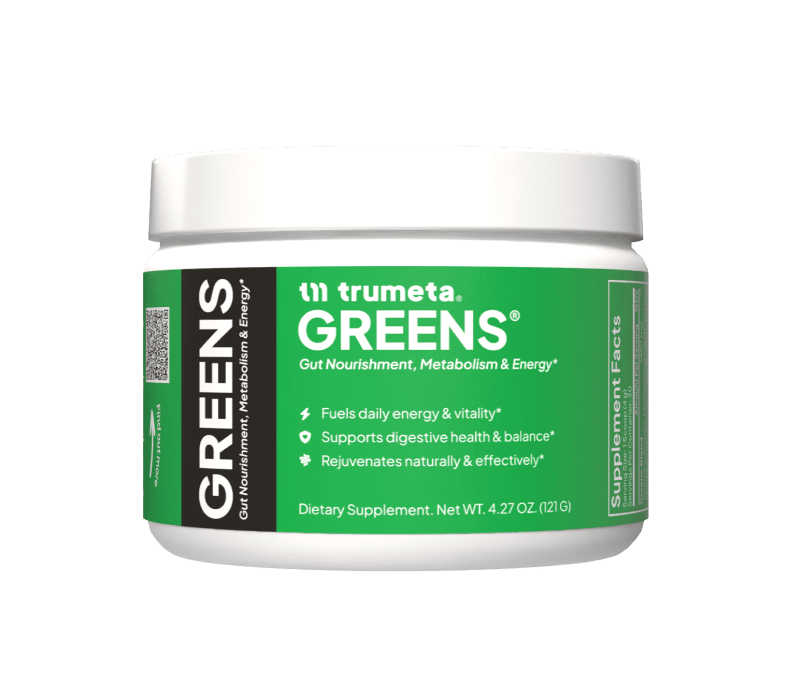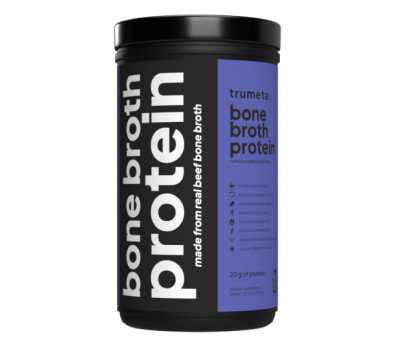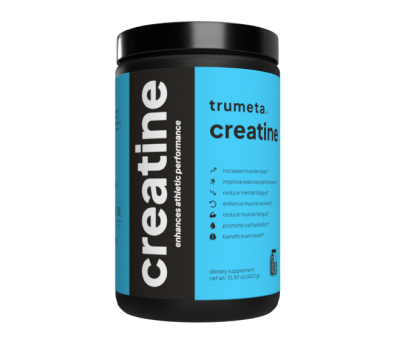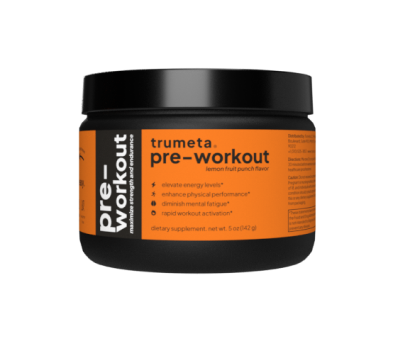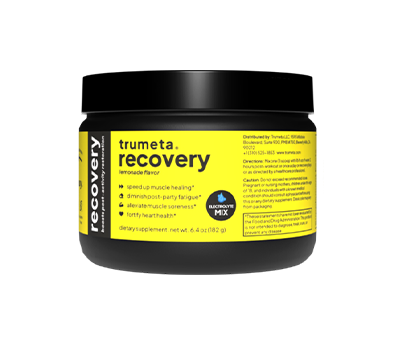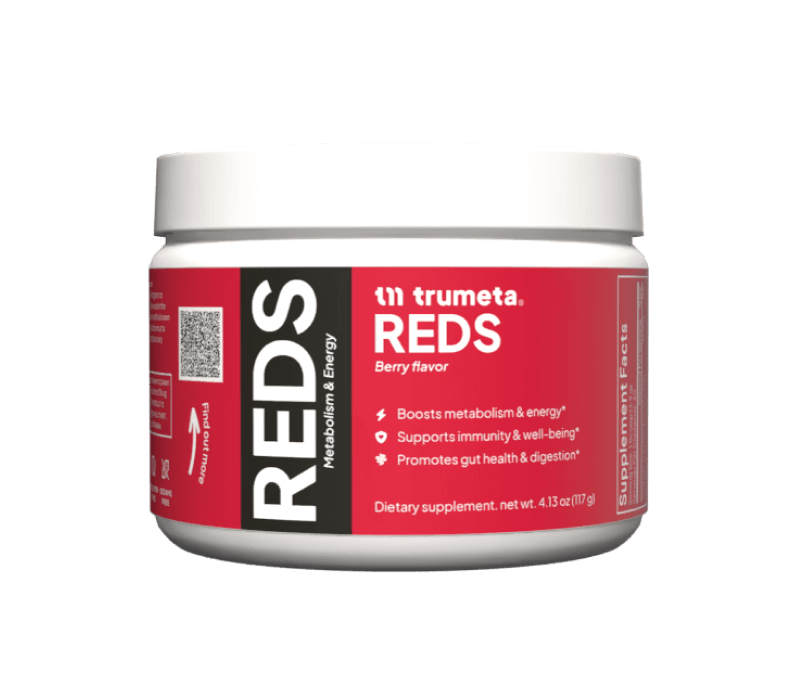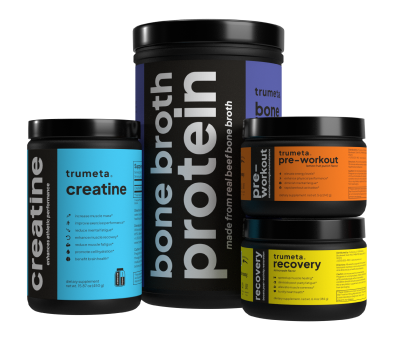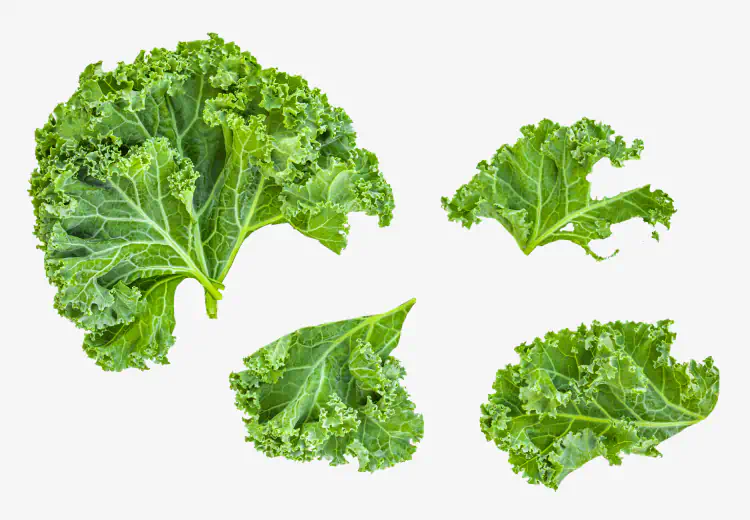
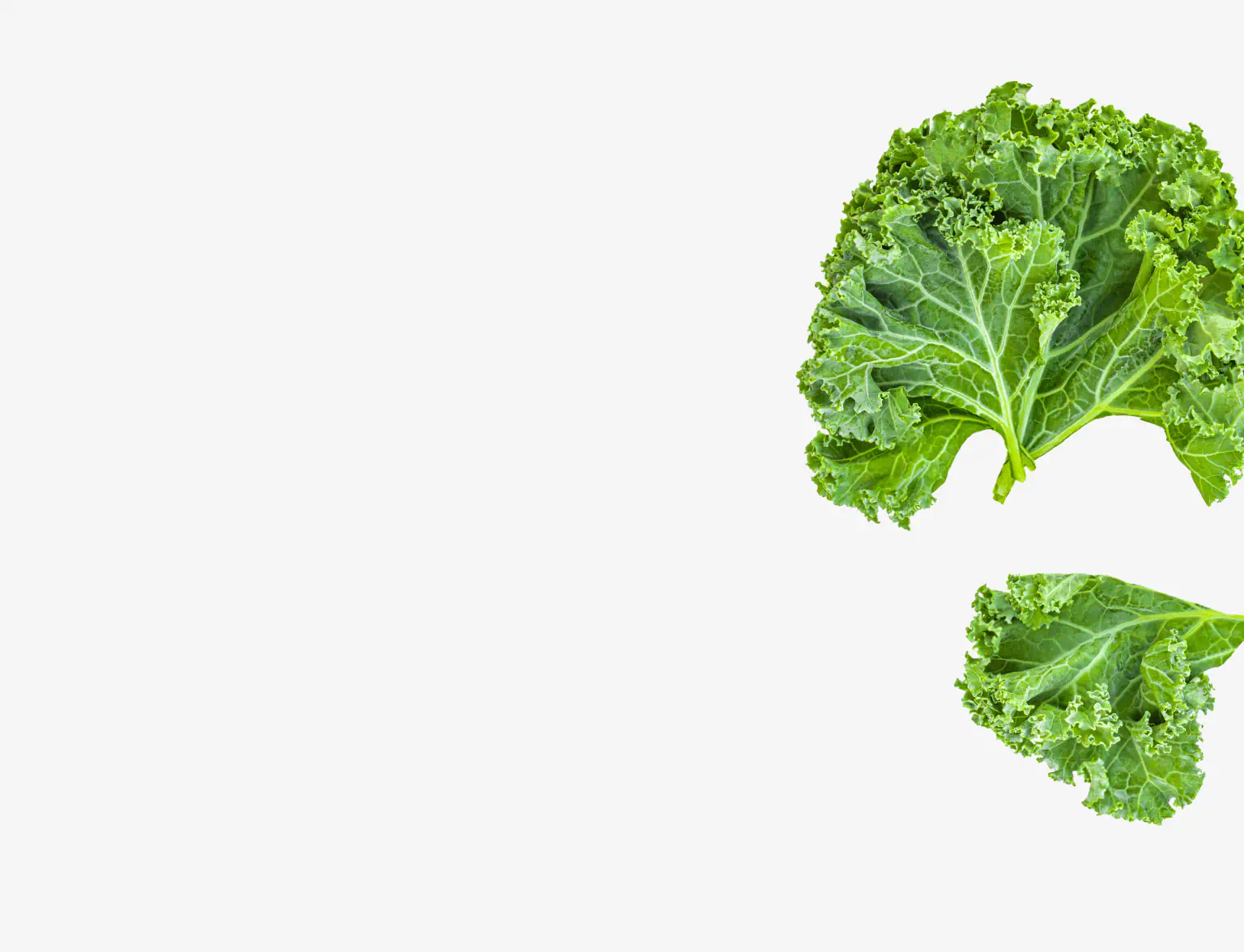

Organic kale:
Nutritional benefits & detox power
Organic kale tops the charts as a nutritional powerhouse among leafy greens, bursting with vitamins, minerals, and beneficial plant compounds. Grown without synthetic chemicals or pesticides, this vibrant vegetable delivers clean nutrition in every leaf. The deep green curls and ruffles aren't just visually striking – they signal the presence of powerful antioxidants and phytonutrients that support whole-body wellness.
From fresh salads to hearty soups, organic kale adapts to countless culinary uses while delivering exceptional nutritional value. Its slightly peppery flavor adds depth to meals, and its impressive nutrient profile supports everything from digestive health to natural detoxification processes.
Benefits of Organic Kale
The nutritional profile of organic kale translates into tangible health advantages. Without the chemical residues found in conventional farming, this leafy green delivers pure nutrition that works with your body's natural processes.
Rich in Antioxidants
Organic kale stands out for its exceptional antioxidant content, featuring vitamin C, beta-carotene, and various flavonoids. These natural compounds neutralize harmful free radicals that can damage cells and accelerate aging. The dark green pigment signals the presence of these protective elements.
Supports Heart Health
The potassium content in kale plays a vital role in maintaining healthy blood pressure levels.
Adding organic kale to your weekly menu contributes to heart health through these natural pathways. The plant compounds in kale support vascular flexibility and function, contributing to overall circulatory wellness.
Boosts Immune System
Organic kale delivers substantial amounts of both vitamin C and vitamin A, two nutrients crucial for immune defense. These vitamins help maintain the structural integrity of skin and mucous membranes, your body's first barrier against external threats.
Consuming fresh organic kale regularly provides these immune-supporting nutrients in their most bioavailable form.
Promotes Healthy Skin
The combination of vitamins and antioxidants in organic kale supports skin health from within. Vitamin C aids in natural collagen formation, helping maintain skin elasticity and appearance.
Regular kale consumption provides your skin with nutrients that support its renewal processes. The unique blend of vitamins, minerals, and plant compounds works together to maintain skin vitality and natural glow.
Supports Bone Health
The calcium, vitamin K, and magnesium in organic kale create a powerful trio for skeletal strength. Vitamin K stands out as particularly abundant in kale and plays a crucial role in calcium utilization within bone tissue.
A single serving of kale delivers significant amounts of these bone-supporting nutrients in forms your body can readily use. Incorporating organic kale into meals helps maintain optimal bone density naturally.
Forge Your Victory
Key nutrients
The impressive nutritional profile of organic kale makes it a standout addition to any health-focused eating plan. Its dense nutrient content delivers multiple benefits with minimal calories.
Vitamin A
The beta-carotene in kale converts to vitamin A in your body, supporting healthy vision and immune function. This nutrient plays a particularly important role in night vision and overall eye health.
Your body transforms only the amount of beta-carotene it needs into vitamin A, making kale a safe source of this essential nutrient. The natural form found in organic kale works optimally with your body's systems.
Vitamin C
Surprisingly, kale outperforms many citrus fruits in vitamin C content per serving. This powerful nutrient supports immune function while playing a key role in collagen production for skin health.
Fresh organic kale preserves this delicate vitamin, especially when eaten raw or lightly cooked. The vitamin C in kale also helps your body absorb iron more efficiently and shields cells from environmental stress.
Vitamin K
Few foods match the extraordinary vitamin K content found in kale. This often-overlooked nutrient activates proteins that direct calcium to your bones and away from blood vessels.
A single cup of organic kale provides several times the daily recommended amount of vitamin K. This makes kale particularly valuable for those focused on maintaining bone strength through natural food choices.
Calcium
Many people don't realize kale serves as an excellent plant-based calcium source. While dairy products typically get attention for calcium content, kale delivers this mineral without saturated fat or lactose.
The calcium in organic kale works in tandem with its vitamin K content to optimize bone health. This nutritional synergy makes kale especially valuable for skeletal strength and function.
Potassium
Kale provides significant amounts of potassium, an electrolyte mineral that works with sodium to balance fluids and support proper nerve and muscle function. This essential mineral plays a key role in maintaining healthy blood pressure.
Adding potassium-rich foods like organic kale to your diet helps meet daily requirements for this vital nutrient. Consuming adequate potassium supports heart rhythm, muscle contractions, and cellular processes.
Magnesium
The magnesium in kale participates in hundreds of biochemical reactions throughout your body. This mineral supports energy production, muscle function, and nervous system regulation.
Organic kale provides magnesium that works alongside calcium and vitamin D for bone maintenance. Including kale in your weekly rotation helps ensure steady intake of this important mineral.
How to Use Organic Kale?
Adding organic kale to your meals takes minimal effort but yields maximum nutritional rewards. This adaptable green works in countless dishes across various cooking styles.
Start by washing fresh kale thoroughly under running water, then remove the tough center stems. Tear or chop the leaves based on your recipe needs. For highest nutritional value, include some raw kale in your diet to preserve heat-sensitive vitamins.
Consider these practical ways to enjoy organic kale:
- Toss baby kale leaves into mixed green salads for nutritional variety
- Whirl kale into fruit smoothies—the sweetness balances kale's flavor
- Quickly sauté kale with garlic, red pepper flakes, and olive oil
- Create crispy kale chips as a nutrient-dense snack option
- Stir chopped kale into soups during the last few minutes of cooking
- Mix shredded kale into morning egg dishes for a nutritional boost
- Layer kale under hot grains or proteins for a wilted salad effect
Keep frozen organic kale on hand for convenience without sacrificing nutrition. This form works perfectly in smoothies and cooked recipes when fresh isn't available.
Growing enthusiasts can plant organic kale seeds for a continuous harvest of fresh leaves. Kale organic seeds thrive in most climate zones and often produce multiple cuttings from one planting.
Many find raw kale's texture challenging initially. Try massaging chopped leaves with a splash of olive oil and a pinch of salt for about two minutes—this breaks down the fibers for a more tender result with milder flavor.
For nutrition on the go, organic kale powder blends easily into smoothies, soups, or baked goods. This concentrated form delivers kale's benefits without the preparation time of fresh leaves.
Store unwashed kale wrapped loosely in paper towels inside a partially open bag in the refrigerator. This method allows excess moisture to escape, extending freshness for up to a week.
Nutritional Information
The remarkable nutrition packed into organic kale comes with minimal caloric impact, making it ideal for nutrient-dense eating. Here's what you'll find in a single cup (67 grams) of raw organic kale:
- Calories: 33
- Protein: 2.9 grams
- Carbohydrates: 6.7 grams
- Fiber: 1.3 grams
- Natural Sugars: 0.9 grams
- Fat: 0.6 grams
- Water Content: 84% by weight
This modest serving delivers an impressive vitamin profile:
- Vitamin K: 547 mcg (684% of daily value)
- Vitamin A: 10,302 IU (206% of daily value)
- Vitamin C: 80.4 mg (134% of daily value)
- Vitamin B6: 0.2 mg (9% of daily value)
- Folate: 19.4 mcg (5% of daily value)
- Vitamin E: 0.6 mg (3% of daily value)
The mineral content in a cup of organic kale includes:
- Manganese: 0.5 mg (26% of daily value)
- Copper: 0.2 mg (10% of daily value)
- Calcium: 90.5 mg (9% of daily value)
- Potassium: 299 mg (9% of daily value)
- Magnesium: 22.8 mg (6% of daily value)
- Iron: 1.1 mg (6% of daily value)
- Phosphorus: 37.5 mg (4% of daily value)
Different kale varieties offer slightly different nutritional profiles, with some higher in specific compounds. Light steaming often increases nutrient availability while preserving heat-sensitive vitamins.



Strength isn't given.
It's earned.
Every rep. Every set. Every scoop.
Frequently asked questions
References
Does kale have to be organic?
While conventional kale offers nutrients, organic varieties avoid synthetic pesticides. Kale often carries higher pesticide residues when grown conventionally. Organic is preferable when available, but thoroughly washing conventional kale helps reduce residues.
Does organic kale have pesticides?
Organic kale may contain minimal residues from natural plant-based pest management substances permitted in organic farming. These break down quickly without harmful effects. Always wash organic kale thoroughly before eating.
Does organic kale have thallium?
Kale can absorb small amounts of naturally occurring thallium from soil, but levels in properly grown organic kale remain well below concern thresholds. Rotate different greens in your diet for balanced nutrition.
LD, M. W. R. (2024). What are the health benefits of kale? https://www.medicalnewstoday.com/articles/270435
Lučić, D., Et Al. (2023). Antioxidant and Antiproliferative Activities of Kale (Brassica oleracea L. Var. acephala DC.) and Wild Cabbage (Brassica incana Ten.) Polyphenolic Extracts. Molecules, 28(4), 1840. https://pmc.ncbi.nlm.nih.gov/articles/PMC9958672/
Sica, D. A., Et Al. (2002). Importance of potassium in cardiovascular disease. Journal of Clinical Hypertension, 4(3), 198–206. https://pmc.ncbi.nlm.nih.gov/articles/PMC8101903/
Carr, A., & Maggini, S. (2017). Vitamin C and immune function. Nutrients, 9(11), 1211. https://pmc.ncbi.nlm.nih.gov/articles/PMC5707683/
Pullar, J., Et Al. (2017). The roles of vitamin C in skin health. Nutrients, 9(8), 866. https://pmc.ncbi.nlm.nih.gov/articles/PMC5579659/
Rodríguez, C. R., & Curiel, M. D. (2019). Vitamin K and bone health: A review on the effects of Vitamin K deficiency and supplementation and the effect of Non-Vitamin K antagonist oral anticoagulants on different bone parameters. Journal of Osteoporosis, 2019, 1–8. https://pmc.ncbi.nlm.nih.gov/articles/PMC6955144/
Saari, J. C. (2016). Vitamin A and Vision. Sub-cellular Biochemistry/Subcellular Biochemistry, 231–259. https://pubmed.ncbi.nlm.nih.gov/27830507/
DePhillipo, N. N., Et Al. (2018). Efficacy of vitamin C supplementation on collagen synthesis and oxidative stress after musculoskeletal injuries: a Systematic review. Orthopaedic Journal of Sports Medicine, 6(10). https://pmc.ncbi.nlm.nih.gov/articles/PMC6204628/
Office of Dietary Supplements - calcium. (n.d.). https://ods.od.nih.gov/factsheets/Calcium-HealthProfessional/
Frassetto, L. A., Goas, A., Gannon, R., Lanham-New, S. A., & Lambert, H. (2023). Potassium. Advances in Nutrition, 14(5), 1237–1240. https://pmc.ncbi.nlm.nih.gov/articles/PMC10509458/
Office of Dietary Supplements - magnesium. (n.d.). https://ods.od.nih.gov/factsheets/Magnesium-HealthProfessional/
